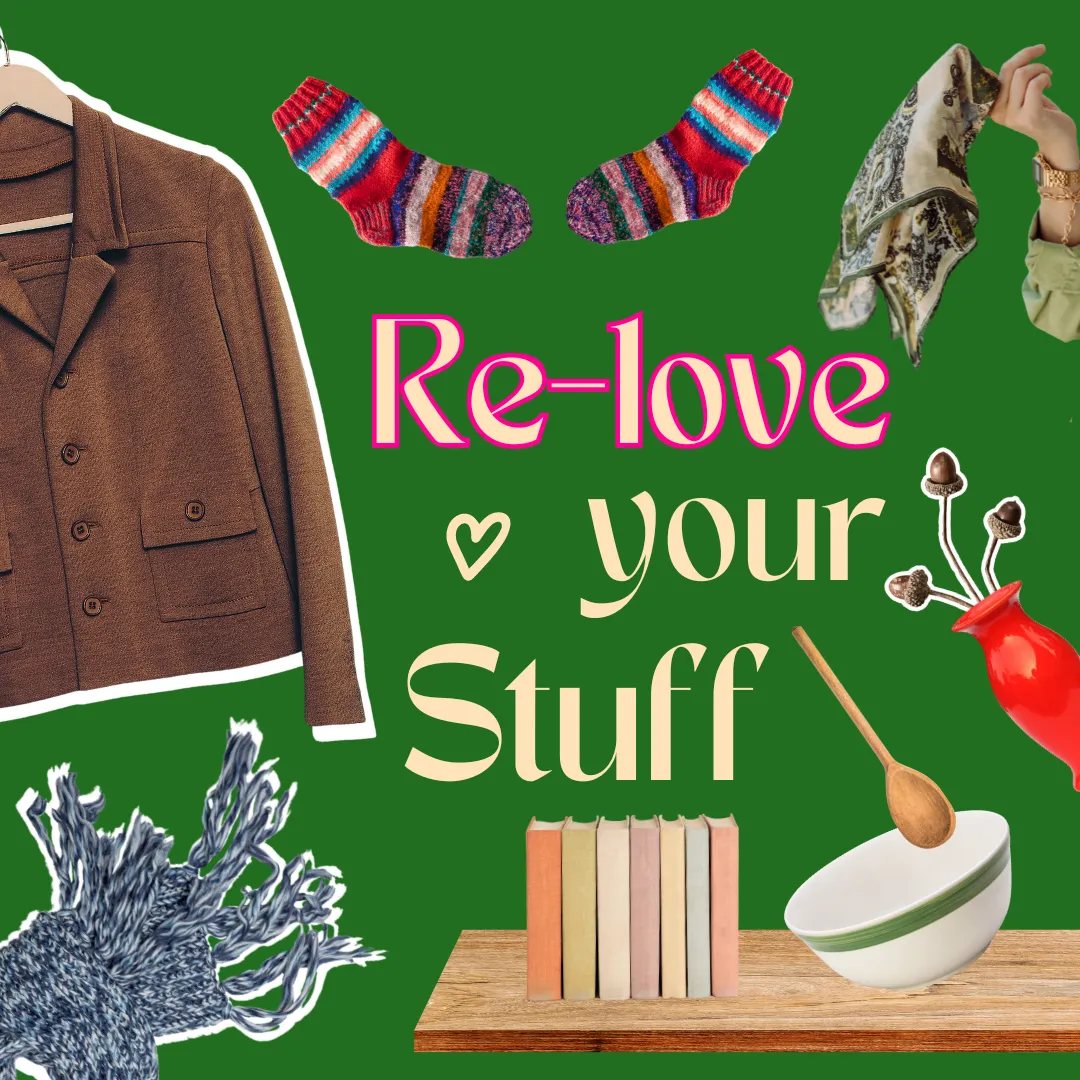
A Complete Guide to Decluttering: Make 2024 the Year of Organisation
When a new year begins, many of us are drawn to the idea of organisation and decluttering our living spaces in a bid to start the new year fresh. The rise of overconsumption, fast fashion, and a "more is better" mindset has led to cluttered homes and overflowing closets. Not only is this clutter visually unappealing and bad for the environment, but research shows it can even negatively impact our mental health.
This year, let's challenge ourselves to declutter, focus on nifty ways to waste less and embrace more mindful consumption habits. The new year provides the perfect reset moment to gain control over the clutter and simplify our lives.

The Overconsumption Epidemic
Our modern consumer culture encourages the endless accumulation of stuff. Brands constantly launch new products and trends, making it difficult to practise moderation. This wave of overconsumption has led to overwhelmed homes, overflowing landfills and serious environmental harm. Research shows the average UK household wastes nearly £4,600 annually on avoidable expenses. All this excess purchasing and waste has alarming environmental impacts.
Additionally, the obsession with newness has created a throwaway culture. Appliances, electronics, clothes and much more get discarded long before the end of their usable life span. Not only is this wasteful, but constantly manufacturing replacements has environmental costs. The UK is set to become the biggest contributor of e-waste in 2024, posing ecological threats.
Reducing our overconsumption problem is crucial for reducing humanity's carbon footprint. This requires rethinking assumptions of endless growth and re-evaluating consumerist lifestyles. Individuals can make an impact through mindful purchasing, donating unused goods, and embracing alternative economic models like sharing, renting and repairing. But policy changes that hold producers accountable are critically important.

A Room-by-Room Approach
Going room by room is an effective approach when decluttering your home. Tackling each room in turn makes the process of decluttering less overwhelming because you can take your time, doing one room each day. For each room, pull out items from cupboards, shelving and from surfaces and pile it in the centre of the room.
For each item, you can then assess it in turn to decide if it’s something you want to keep, donate or something that needs to be repaired or replaced. This can be highly effective with items that we tend to accumulate without really looking at again for long periods, like books or clothing, but it can be useful for any room in your home. From food cupboards, removing expired items, to decluttering cosmetics in your bathroom and gadgets or tech you no longer use, move room by room through your home and really consider each item you find.

Dispose of Clutter Responsibly
When decluttering, avoid sending items directly to landfill whenever possible. First, consider if friends or family members could use any of the items you're removing. Useful items can also be donated to charity shops, allowing them to be reused by those in need. Alternatively, you could use the opportunity to make a bit of extra cash by selling used items on. Research shows that 35% consumers increased how often they bought used items in 2023, with over 52% motivated by the cost-saving measures and the sustainability benefits it offers.
For electronics, the UK has a Waste Electrical and Electronic Equipment (WEEE) recycling programme. Check if your local authority offers collections or drop-off locations to responsibly recycle old electronics. For large items like appliances and furniture, your council may collect these or you can contact a private company to handle removal. If selling or donating items is not an option, you can utilise your local recycling centre or see if you can repurpose your items in a new way, to enable further use. Most accept paper, plastics, metals and other household recycling, as well as textiles in the form of clothing banks which will reuse or repurpose old clothing and bedding. When disposing of clutter, always aim for the most environmentally friendly option.

Do the "Spark Joy" Test
Japanese organisation expert Marie Kondo has popularised a decluttering approach that asks if each item in your home truly "sparks joy." When decluttering, pick up each object and tune into how you feel. Keep items that provide a little surge of happiness or sense of usefulness in your life, and discard anything that doesn't spark joy to free up room, both physically and emotionally.
The spark joy test is subjective and may not work for everyone but it can provide a way to become more intentional about what you own. As you declutter, periodically ask yourself "Does this item add value to my life or is it simply taking up space?" If it's the latter, let it go. Though radical, Kondo's approach forces us to evaluate if our belongings are actually improving our lives or just contributing to clutter.

"Shop" Your Own Wardrobe
One of the benefits of decluttering is that it shows you just how much you already have lingering in your home that you’d likely forgotten about. Purchasing less and creatively using what you own is better for your wallet and the environment, and by reassessing what you have, you have the chance to ‘shop’ your own wardrobe instead of buying new.
Check what still fits and suits your lifestyle and your personal style, then challenge yourself to wear everything in your wardrobe over the course of the month. Try different combinations instead of sticking to tried and true outfits, and look online or in magazines for style inspiration. If alterations are needed to make items wearable again, consider hemming, taking in seams or replacing buttons to freshen pieces up and make yourself excited to wear them again. With a little imagination, you can get so much more wear out of clothes you already own, without needing to throw everything out and start again.


Maud creates seasonal capsule wardrobes to make the most of the clothes she owns. Many outfits can be made with different combinations of the same clothes!

Declutter, Conserve and Thrive
As we embark on a new year, decluttering our homes and cutting back on overconsumption should be top priorities. Clutter and excess items negatively increase stress and put unnecessary strain on the environment through increased waste and landfill contributions. By decluttering room-by-room, making sure you’re disposing of items responsibly and seeing the items you own from a fresh perspective, you can create peaceful, organised homes.
Decluttering and responsible consumption go hand in hand. By putting these principles into practice throughout 2024, we can make this year one of organisation, reuse and repair. So, let's leave overconsumption and clutter in the past as we look ahead to more mindful and sustainable living.
Don’t forget, Sunny Jar can help you approach your wardrobe with fresh sustainable eyes, via our regular clothes swaps and mending workshops. Check out our latest dates and venues via our Instagram.
This article was kindly written by freelance writer Annie Button.
Graphics designed by Sunny Jar Eco Hub.

